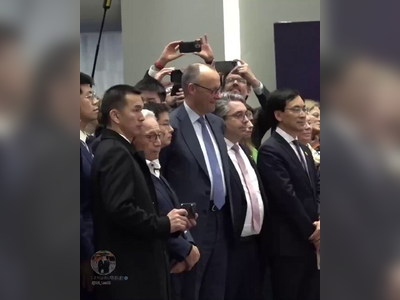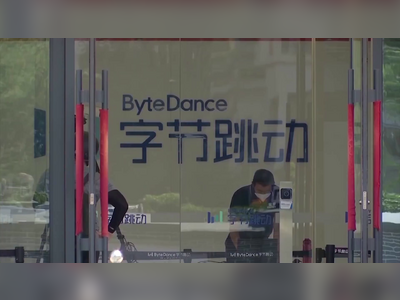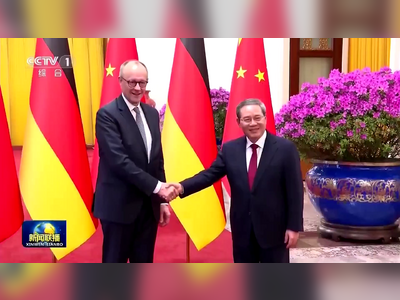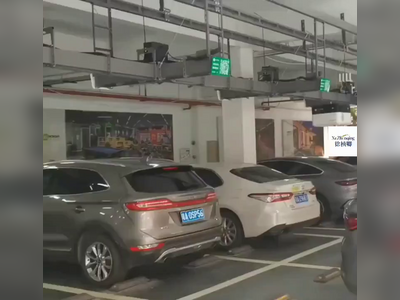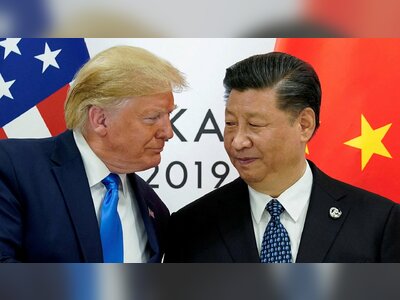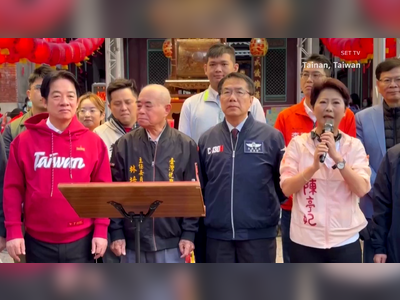
Three Years On, RCEP Makes Strides in Fostering Regional Cooperation
The RCEP proves pivotal in stabilizing supply chains and enhancing regional integration across Asia-Pacific.
The Regional Comprehensive Economic Partnership (RCEP), heralded as the world's largest free trade agreement by population and economic scale, continues to show promising progress three years after its inception in January 2022. The agreement, encompassing 15 nations across the Asia-Pacific, exemplifies China's commitment to fostering regional integration and promoting mutual economic prosperity.
Since coming into effect, RCEP has delivered tangible benefits through tariff reductions and simplified customs procedures, markedly enhancing trade and investment facilitation.
This has been crucial in ensuring stable industrial and supply chains across the region, pushing the Asia-Pacific into an era of high-quality economic development.
Furthermore, the RCEP's institutional gains are exemplified by a recent freight train departure from Kunming, China, to Laos, signifying improved connectivity and economic synergy among member nations.
The China-Laos Railway, a critical infrastructure project, amplifies the connectivity opportunities facilitated by the RCEP. Operational since December 2021, it has transported over 50 million tons of cargo, including 11.58 million tons cross-border, underscoring enhanced regional logistics and supply chain capabilities.
As this connectivity extends, it enables more efficient trading routes, allowing goods from countries like Indonesia, Thailand, Vietnam, and Japan to swiftly reach major Chinese ports, further binding the member economies.
Research by the Asian Development Bank highlights that by 2030, the RCEP is projected to add $245 billion annually to regional income and create 2.8 million jobs.
Such prospects emphasize the RCEP's role in unleashing more trade benefits as regional connectivity strengthens.
This also represents significant opportunities for local enterprises, as evidenced by the burgeoning customs clearance industry in Boten, Laos, a key transit hub on the China-Laos Railway.
The railway's effectiveness is further illustrated by the reduced transit time for goods between Vientiane and Boten, important for countries leveraging this route to expand their economic activities.
The RCEP, through its comprehensive trade rules, integrates numerous trade and investment agreements within the region, advancing a robust multilateral trading system.
The United Overseas Bank in Singapore notes significant tariff reductions for Singaporean enterprises operating in China, facilitating easier access to the Chinese market.
Meanwhile, Malaysian official Unny Sankar Ravi Sankar attests to the RCEP's provision of ample opportunities for businesses in the region, bolstering economic stability and growth.
In December 2024, the RCEP Support Unit (RSU) was established in Jakarta, championed by both China and ASEAN's chair Indonesia, marking another milestone in RCEP's implementation.
Chinese imports and exports with other RCEP members reached impressive levels within the first three quarters of 2024, showing continued growth in economic interactions.
Moreover, nations like Cambodia anticipate significant economic benefits as they move towards higher development statuses, boosted by the RCEP's positive impacts.
Thailand also experiences growing trade volumes within the RCEP network, reflecting the overarching theme of mutual economic enrichment among member states.
Experts, such as Tang Zhimin from the Panyapiwat Institute of Management, praise the RCEP for elevating service trade and investment ties between China and ASEAN members, signaling an advanced commitment to regional cooperation and development.
Overall, through initiatives such as the China-Laos Railway and broader economic partnerships, the RCEP underlines China's dedication to regional collaboration.
This effort not only benefits China's economic stature but also contributes to the shared growth and convergence of nations throughout the Asia-Pacific.
Since coming into effect, RCEP has delivered tangible benefits through tariff reductions and simplified customs procedures, markedly enhancing trade and investment facilitation.
This has been crucial in ensuring stable industrial and supply chains across the region, pushing the Asia-Pacific into an era of high-quality economic development.
Furthermore, the RCEP's institutional gains are exemplified by a recent freight train departure from Kunming, China, to Laos, signifying improved connectivity and economic synergy among member nations.
The China-Laos Railway, a critical infrastructure project, amplifies the connectivity opportunities facilitated by the RCEP. Operational since December 2021, it has transported over 50 million tons of cargo, including 11.58 million tons cross-border, underscoring enhanced regional logistics and supply chain capabilities.
As this connectivity extends, it enables more efficient trading routes, allowing goods from countries like Indonesia, Thailand, Vietnam, and Japan to swiftly reach major Chinese ports, further binding the member economies.
Research by the Asian Development Bank highlights that by 2030, the RCEP is projected to add $245 billion annually to regional income and create 2.8 million jobs.
Such prospects emphasize the RCEP's role in unleashing more trade benefits as regional connectivity strengthens.
This also represents significant opportunities for local enterprises, as evidenced by the burgeoning customs clearance industry in Boten, Laos, a key transit hub on the China-Laos Railway.
The railway's effectiveness is further illustrated by the reduced transit time for goods between Vientiane and Boten, important for countries leveraging this route to expand their economic activities.
The RCEP, through its comprehensive trade rules, integrates numerous trade and investment agreements within the region, advancing a robust multilateral trading system.
The United Overseas Bank in Singapore notes significant tariff reductions for Singaporean enterprises operating in China, facilitating easier access to the Chinese market.
Meanwhile, Malaysian official Unny Sankar Ravi Sankar attests to the RCEP's provision of ample opportunities for businesses in the region, bolstering economic stability and growth.
In December 2024, the RCEP Support Unit (RSU) was established in Jakarta, championed by both China and ASEAN's chair Indonesia, marking another milestone in RCEP's implementation.
Chinese imports and exports with other RCEP members reached impressive levels within the first three quarters of 2024, showing continued growth in economic interactions.
Moreover, nations like Cambodia anticipate significant economic benefits as they move towards higher development statuses, boosted by the RCEP's positive impacts.
Thailand also experiences growing trade volumes within the RCEP network, reflecting the overarching theme of mutual economic enrichment among member states.
Experts, such as Tang Zhimin from the Panyapiwat Institute of Management, praise the RCEP for elevating service trade and investment ties between China and ASEAN members, signaling an advanced commitment to regional cooperation and development.
Overall, through initiatives such as the China-Laos Railway and broader economic partnerships, the RCEP underlines China's dedication to regional collaboration.
This effort not only benefits China's economic stature but also contributes to the shared growth and convergence of nations throughout the Asia-Pacific.
AI Disclaimer: An advanced artificial intelligence (AI) system generated the content of this page on its own. This innovative technology conducts extensive research from a variety of reliable sources, performs rigorous fact-checking and verification, cleans up and balances biased or manipulated content, and presents a minimal factual summary that is just enough yet essential for you to function as an informed and educated citizen. Please keep in mind, however, that this system is an evolving technology, and as a result, the article may contain accidental inaccuracies or errors. We urge you to help us improve our site by reporting any inaccuracies you find using the "Contact Us" link at the bottom of this page. Your helpful feedback helps us improve our system and deliver more precise content. When you find an article of interest here, please look for the full and extensive coverage of this topic in traditional news sources, as they are written by professional journalists that we try to support, not replace. We appreciate your understanding and assistance.
